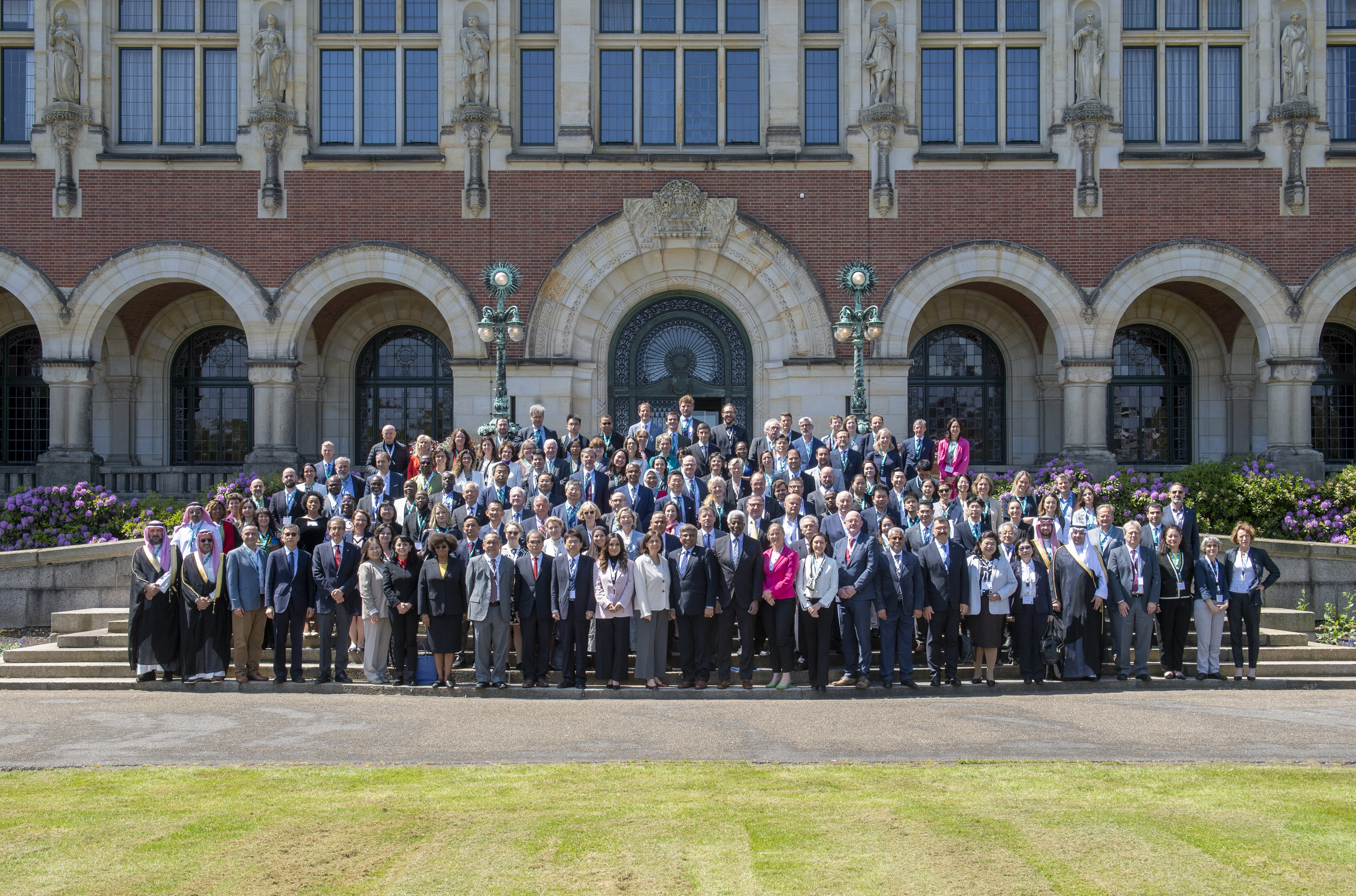2023 Annual Meeting

The 11th GRC Annual Meeting was held at the Peace Palace in The Hague, the Netherlands, from 29 May–2 June 2023. The event was hosted by the Dutch Research Council (NWO) and co-hosted by the São Paulo Research Foundation (FAPESP). The event included seven side events, technical visits, GRC regional meetings and the GRC Annual Meeting programme, which included panel discussions and reflections with keynote speakers and break-out group chairs and rapporteurs.
The GRC Annual Meeting is an excellent opportunity to meet international agencies, discuss current topics that are relevant to the public research funding ecosystem, share best practices and increase collective networking, according to Marcel Levi, President of the Dutch Research Council (NWO) and Marco Antônio Zago, President of the São Paulo Research Foundation (FAPESP).
The meeting gathered 81 international scientific agencies from 61 countries and had attendance of approximately 180 participants. Two main topics were extensively discussed in the year of 2022 and endorsed in the GRC 2023 meeting: 1) Rewarding and Recognizing Scientists and 2) Climate Change Funding Research.
The Statement of Principles (SoP) incorporates different views on the two topics as each region has different realities. The endorsement of the document sets common values and provides guidelines to facilitate scientific cooperation, according to Euclides de Mesquita Neto, FAPESP Deputy Coordinator for Special Programs and Research Collaborations and Executive Secretary of the GRC.
There is a need to go beyond metrics based on scientific publications and it should adapt to each context on rewarding and recognizing scientists. There is a need to recognise the diversity of research activities.
Climate Change is a global threat that impacts all countries and requires strong international collaboration to meet its challenges in a way that contributes to improving people's quality of life, achieving sustainable development and economic growth, and preserving natural resources and ecosystems. Socioeconomic and gender inequality makes certain regions more vulnerable to climate impacts.
Many of the social, economic, and natural issues associated with climate change can be resolved, to large extents, with existing knowledge and technology. However, strategic and science-based solutions and implementation are dependent on local arrangements and proper public policies. The SoP highlights transdisciplinary and multidisciplinary areas of knowledge involving local communities, public, and private sectors.
It is important to think globally and act locally. International agencies should promote sustainable science and to obtain citizens' engagement in scientific activity.
International speakers were invited to contribute on sessions of Climate Change, International Collaboration and Rewarding and Recognizing Scientists: Salvatore Aricò, CEO of International Science Council (ISC); Thelma Krug, Vice-President of the United Nations Intergovernmental Panel on Climate Change (IPCC) and member of FAPESP's Superior Council; Cherry Murray, UN 10-Member Group; Laura Rovelli, a member of the Executive Council of DORA (Declaration on Research Assessment) and coordinator of the Latin American Council of Social Sciences (CLACSO), based in Buenos Aires.
Meeting attendants were able to participate in side events organized at the Hilton Hotel - The Hague covering the following topics:
- Research integrity and security
- Exploring funding agency roles in supporting responsible internationalization and reciprocity
- The Race and Ethnicity dimension of Inclusion and Diversity in the Research Ecosystem
- Leveraging Transdisciplinary Research for Community Impact: Global South Experiences
- Promoting Equality, Diversity, and Inclusion in Research - Reviewing the Statement of Principles After 7 Years
- Supporting Researchers at Risk - How can the international scientific community support researchers at risk, does more need to be done, is there value in greater cooperation and coordination
- Making research assessment reform a global endeavor
The Multilateral Engagement Working Group (MLE-WG) was officially created by FAPESP, JST (Japan Science and Technology Agency), RCN (Research Council of Norway) and DFG (German Research Foundation) in The Hague as a result of initial discussions during the 10th Annual Meeting in Panama. The MLE-WG will assist collaboration between scientists around the world and will have the mission to map existing funding mechanisms; to assess opportunities the GRC could promote and implement.
The 12th Annual Meeting will be held in Interlaken, Switzerland from 27 to 31 May 2024, hosted by SNSF (Switzerland) and FONSTI (Côte d'Ivoire). The topic under discussion for the coming year will be Sustainable Research.
